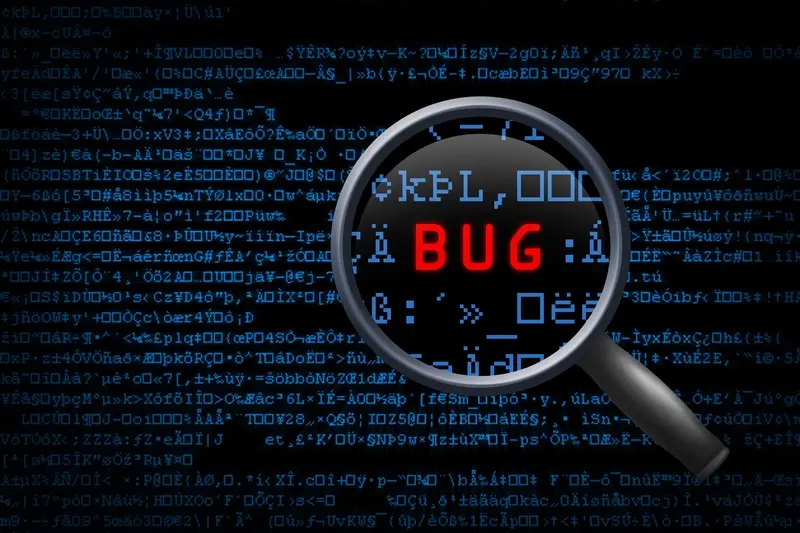How Do Code Reviews Actually Improve Your App's Quality?
After eight years of building mobile apps for everything from tiny startups to massive brands, I can tell you that the difference between a good app and a great one often comes down to what happens behind the scenes. You know what I mean—the stuff users never see but absolutely feel when they're tapping away on their phones. Code reviews are one of those invisible processes that separate the apps people love from the ones that get deleted after five minutes.
Here's the thing about mobile app development: it's not just about writing code that works. Anyone can cobble together an app that technically functions; the real challenge is creating something that works well, feels smooth, and doesn't break when your user base suddenly doubles overnight. That's where code reviews come into play, and honestly, they're one of the most underrated development practices in our industry.
The best apps aren't built by perfect developers—they're built by teams that systematically catch and fix problems before users ever encounter them
Most people think code reviews are just about finding bugs, but that's barely scratching the surface. They're actually about quality improvement at every level—from making your code cleaner and more readable to teaching your team better ways of solving problems. When done properly, they transform how your entire development process works and significantly reduce those panic-inducing moments when something goes wrong in production. In this guide, we'll explore exactly how code reviews make your mobile app better and why they should be part of every development team's routine.
What Are Code Reviews and Why Do They Matter?
After eight years of building mobile apps, I can tell you that code reviews are one of those practices that separate the professionals from the amateurs. A code review is simply when another developer looks at your code before it becomes part of the main app. Think of it as having a second pair of eyes check your work—but these eyes belong to someone who knows exactly what to look for.
The process is straightforward: you write some code, then a teammate examines it line by line. They're looking for mistakes, checking if it follows the team's coding standards, and making sure it won't break anything else in the app. Sometimes they'll suggest better ways to solve the same problem or point out potential security issues you might have missed.
Why Every Development Team Needs Code Reviews
Code reviews matter because they catch problems before your users ever see them. When you're deep in coding, it's easy to miss obvious mistakes or overlook edge cases that could crash your app. Fresh eyes often spot these issues immediately.
But there's more to it than just finding bugs. Code reviews help maintain consistency across your entire codebase—when everyone follows the same patterns and standards, the app becomes much easier to maintain and update. They also spread knowledge around the team; junior developers learn faster, and senior developers stay aware of what's happening in different parts of the app.
The Three Main Benefits We See Every Day
- Fewer bugs reaching production and causing crashes
- More readable code that any team member can understand
- Better knowledge sharing between developers
- Improved security through multiple people checking for vulnerabilities
- Consistent coding standards across the entire project
The Real Problems Code Reviews Actually Solve
After years of building mobile apps, I've learnt that code reviews aren't just about finding typos or missing semicolons—they solve much bigger problems that can make or break your app's success. The most obvious one is stopping bugs before they reach your users, but that's just the tip of the iceberg.
One of the biggest issues we face in mobile app development is knowledge silos. You know what I mean—when only one person understands how a particular piece of code works, and if they're off sick or leave the company, you're stuck. Code reviews break down these silos by forcing multiple people to look at and understand the same code. This means your team becomes more resilient and your development practices become more sustainable.
Security Vulnerabilities Don't Stand a Chance
Security holes are another major problem that code reviews tackle head-on. When you're rushing to meet a deadline, it's easy to accidentally expose user data or create weak points in your app's security. Having fresh eyes review your code means these vulnerabilities get spotted and fixed before they become a serious threat to your users' privacy.
Set up your code review process so that no code goes into production without at least one other person checking it—this simple rule prevents most major issues.
Maintaining Code Standards Across Your Team
Code reviews also solve the consistency problem. Without them, every developer writes code differently, making your mobile app harder to maintain and debug. Reviews ensure everyone follows the same standards, creating cleaner, more professional code that supports better quality improvement across your entire project.
How Code Reviews Catch Bugs Before Users Do
After eight years of building apps, I can tell you that finding bugs after launch is expensive and embarrassing. Code reviews are like having a safety net—they catch problems before your users ever see them. When we review code, we're looking at every line with fresh eyes, spotting mistakes that the original developer missed.
Think about it this way: when you write code, you know what you meant to do. Your brain fills in the gaps and assumes everything works perfectly. But when someone else reads your code, they see what's actually there, not what you intended. This is where bugs get caught.
Common Bugs We Catch During Reviews
- Null pointer exceptions that crash the app
- Memory leaks that slow down performance
- Logic errors that produce wrong results
- Security vulnerabilities that expose user data
- Edge cases that weren't tested properly
- Integration issues between different parts of the app
The real power of code reviews isn't just catching obvious mistakes—it's spotting the subtle ones that only show up under specific conditions. Maybe the app works fine with good internet, but crashes when the connection is poor. Or perhaps it handles normal user input perfectly but breaks when someone enters emoji or special characters.
Why Multiple Eyes Matter
We've found that different team members spot different types of problems. Senior developers catch architectural issues whilst junior developers often notice usability problems that experienced programmers might overlook. It's not about being better or worse—it's about having different perspectives on the same piece of code.
The best part? Fixing bugs during code review takes minutes, but fixing them after release can take days and damages your app's reputation.
Making Your Code Easier to Read and Understand
After eight years of building mobile apps, I can tell you that writing code is only half the battle—making it readable is where the real skill comes in. When we're deep in development mode, it's tempting to write code quickly and move on to the next feature. But here's what I've learned: code that looks clever today often becomes a nightmare six months later when you need to fix a bug or add new functionality.
Code reviews force us to step back and ask ourselves whether another developer could understand what we've written. This isn't just about being nice to our teammates; it directly impacts the quality of your mobile app. When code is clear and well-structured, bugs become easier to spot, new features are simpler to add, and your entire development process speeds up.
Why Readable Code Matters for Your App
Think about it this way: your mobile app will likely need updates, bug fixes, and new features throughout its lifetime. If your code is messy and hard to follow, every single change becomes risky and time-consuming. We've all been there—staring at code we wrote months ago, wondering what on earth we were thinking!
Clean code is not written by following a set of rules. You don't become a software craftsman by learning a list of heuristics. Professionalism and craftsmanship come from discipline and dedication.
How Reviews Make Code Clearer
During code reviews, we naturally start explaining our logic to other developers. This process reveals confusing variable names, overly complex functions, and missing comments. It's like having a conversation about your code—and conversations tend to highlight things that don't make sense. The result is code that tells a clear story about what your mobile app is doing and why.
Teaching Your Team Better Programming Skills
Code reviews are like having a personal trainer for your programming team—but instead of building muscles, you're building better coding habits. Every time someone reviews another developer's work, they're not just checking for bugs; they're sharing knowledge, techniques, and approaches that make everyone stronger.
When junior developers see how senior team members structure their code, handle edge cases, or write clear comments, they pick up these skills naturally. It's learning by example, which is often more effective than sitting through training sessions or reading documentation. The reviewer learns too—they might spot a clever solution they hadn't thought of before or discover a new library that solves problems more efficiently.
Knowledge Spreads Across Your Team
One of the biggest wins we see from regular code reviews is how quickly knowledge spreads across the entire team. If one developer figures out how to optimise database queries or implement a tricky animation, that knowledge doesn't stay locked in their head—it gets shared during the review process. Soon, the whole team knows these techniques.
This knowledge sharing is particularly valuable when working with different parts of your app. Your backend specialist might not know much about user interface patterns, but through code reviews, they start picking up frontend skills. Your mobile developers learn about API design by reviewing server code.
Consistent Coding Standards Develop Naturally
Code reviews also help establish consistent coding standards across your project. When team members regularly see and discuss each other's code, they naturally start following similar patterns and conventions. This makes your entire codebase more maintainable and reduces the time spent figuring out how different sections work.
Building Apps That Can Grow and Change Over Time
After years of building mobile apps, I've learned that the biggest difference between apps that succeed and those that don't isn't how clever the initial code is—it's how well that code can adapt when things change. And trust me, things always change.
Code reviews play a massive role in creating what we call "scalable" apps. When we review each other's work, we're not just checking for bugs; we're making sure the code can handle growth. We ask questions like: what happens when this app has ten times more users? What if we need to add a completely new feature next month? Will this code break if we change how user accounts work?
Writing Code That Won't Break Tomorrow
During code reviews, we look for patterns that might cause problems later. Maybe someone's written code that works perfectly for 100 users but will crash when 10,000 people try to use it. Or perhaps they've built a feature in a way that makes it impossible to add similar features without rewriting everything.
Always ask during code reviews: "What would happen if we needed to change this in six months?" This simple question catches most scalability issues before they become expensive problems.
Keeping Your Code Flexible
The best mobile app development practices focus on flexibility. When reviewing code, we check that new features can be added without breaking existing ones—this is where quality improvement really shows. Unlike platform constraints that limit your options, proper code reviews help us spot when someone's taken shortcuts that will make future changes difficult or expensive.
This forward-thinking approach during reviews means your app can evolve with your users' needs instead of requiring a complete rebuild every time you want to add something new.
Setting Up Code Reviews That Actually Work
Right, let's talk about the practical side of things. Setting up code reviews isn't just about saying "everyone needs to check each other's code"—that's a recipe for chaos. After years of implementing these systems across different teams, I've learnt that the setup is what makes or breaks the whole process.
The first thing you need to decide is when reviews happen. Some teams review every single line of code before it goes live, whilst others only review major changes. We've found the sweet spot is reviewing anything that affects core functionality or adds new features—small bug fixes can often skip the full review process.
Who Reviews What
This is where things get interesting. You can't just assign reviews randomly; senior developers should review complex features, but junior team members can absolutely review documentation changes or simple UI updates. We rotate reviewers to prevent bottlenecks—nobody wants to be the person holding up every release.
Tools That Make Life Easier
The right tools matter more than you might think. We use platforms like GitHub or GitLab that let us comment directly on specific lines of code. This makes discussions much clearer than trying to explain problems over email or Slack. For luxury app development or complex enterprise projects, these detailed discussions become even more critical.
| Review Type | Required Reviewers | Time Limit |
|---|---|---|
| Major Features | 2 Senior Developers | 24 hours |
| Bug Fixes | 1 Team Member | 4 hours |
| UI Changes | 1 Developer + Designer | 8 hours |
The key is keeping things moving. Set clear expectations about response times—code sitting in review limbo helps nobody. Most importantly, remember that reviews are conversations, not examinations. The goal is making the app better, not making developers feel rubbish about their work.
Conclusion
After eight years of building mobile apps and watching countless projects succeed or fail, I can tell you that code reviews aren't just another development practice you can skip when deadlines get tight. They're one of the most powerful tools we have for creating apps that actually work well and keep working well over time.
The truth is, every single benefit we've talked about—catching bugs early, making code readable, teaching team members, building scalable systems—these all compound over time. When you start doing proper code reviews, you might not see dramatic changes in your first week. But give it a few months and you'll notice something interesting happening. Your team starts writing better code naturally. They catch their own mistakes before submitting reviews. The codebase becomes something people actually enjoy working with instead of dreading.
I've seen teams transform from constantly firefighting production issues to confidently shipping features without breaking existing functionality. That transformation doesn't happen because of one magical code review that catches one critical bug—it happens because the entire team gets better at their craft through consistent, thoughtful review processes.
The mobile app market is tough enough without shooting yourself in the foot with preventable quality issues. Users have endless alternatives and zero patience for buggy apps. Code reviews give you the quality improvement and development practices you need to build something people will actually want to keep using. They're not glamorous, they're not trendy, but they work.
Share this
Subscribe To Our Learning Centre
You May Also Like
These Related Guides

Can You Really Build A Professional App Without Coding?

Essential Mobile App Design and Development Services for Your Business



